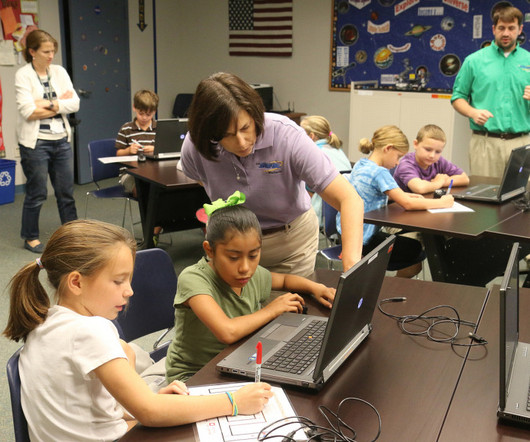Coming This Summer: Powerful, Peer-Led Professional Development That Won’t Bore
Edsurge
APRIL 29, 2017
Here in the Pittsburgh region, educators from the Remake Learning Network —a coalition of more than 250 schools, universities, libraries, startups, nonprofits, museums—offer several hundred peer-led programs, including workshops, peer networks, one-on-one mentorship programs, and summer seminars.
















Let's personalize your content